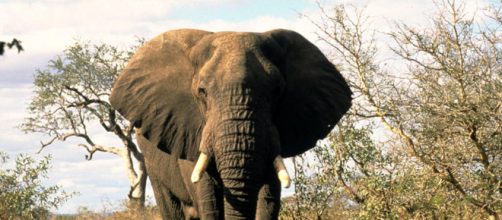The statistics
It is thought that there is a natural background extinction rate of between 1 to 5 Species per year. It has now been estimated that we are losing 1000 to 10 000 times that number. In the past, extinction has been caused by such things as volcanic eruptions, earthquakes, and meteor strikes (think, the dinosaurs). Currently however, roughly 99% of the threat to animals is us, people. The leading cause of extinction in the animal kingdom is habitat fragmentation with over 15% of the Amazon being lost due to cattle farmers making room for their livestock.
The second and third cause go more or less hand in hand; Agriculture and human overpopulation. As our already massive population gets bigger and bigger, more room is needed to feed us, leading to less space being available to perceive “less important species”. In short, we seem to care more about cows, pigs and corn than we do about Orangutangs and blobfish.
Why should we care about endangered species?
An ecosystem is interlinked. If one species in an ecosystem is affected or removed entirely, the rest of the system suffers.
An example of this would be the Deer overpopulation in the US in the Midwest during the early 20th century. Due to more human settling, the deer’s natural predator, the wolf, was reduced to extremely small numbers.
This caused the deer’s population to explode. Because of more deer, the Forrest and human agriculture in the area suffered enormous losses, which in turn affected other species including humans.
If we continue to affect species population in the way that we currently are, there is no doubt that we will suffer the repercussions of our actions.
How can we as a species help?
In a world where one of the most powerful men in the world is slashing the size of two protected National monuments (Hello Mr. Trump, goodbye bears ears and grand staircase) and Brexit is threatening the UK's species endangerment protection, the most important thing we can do is help protect the environment.
Scientists tell us the most important thing we can do to reduce species reduction is to lend hands in the battle to protect the special places where these species exist.
This may include simply visiting a national park or monument, donating the smallest amount of money to organisations that help protect the environment (Greenpeace or the ESGP) or making ones garden Animal friendly. Protesting the use of harmful pesticides and compost may also seem like a small activity, however the number of species affected by these things are massive; birds, bees, smaller species of mammals, fish, and amphibians such as frogs (amphibians are the largest category of Endangered Animals).
Humans have come a long way since the days of using coal power and hunting some animals to extinction. However if we don’t change the way we act our part in the extinction of animals and organism will eventually lead to our own downfall.


